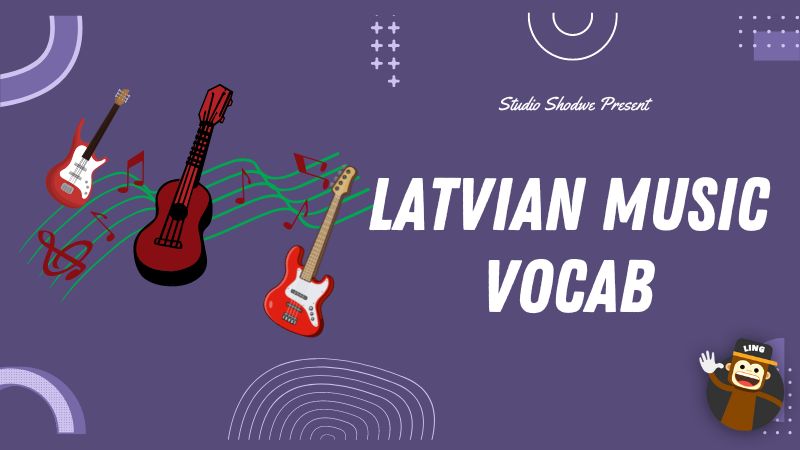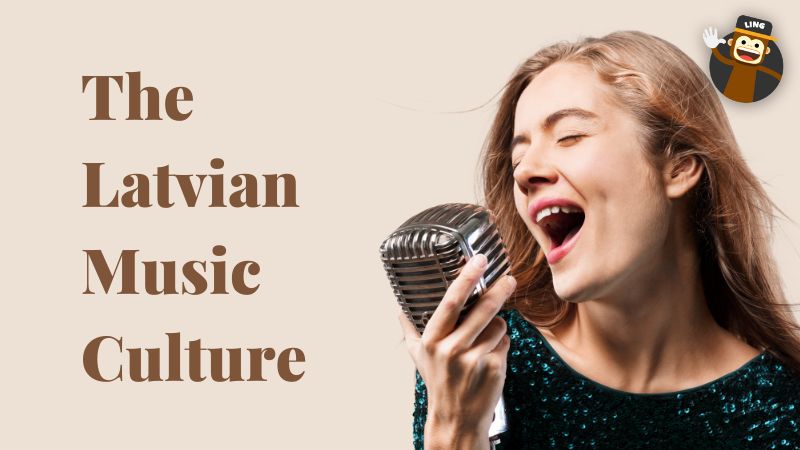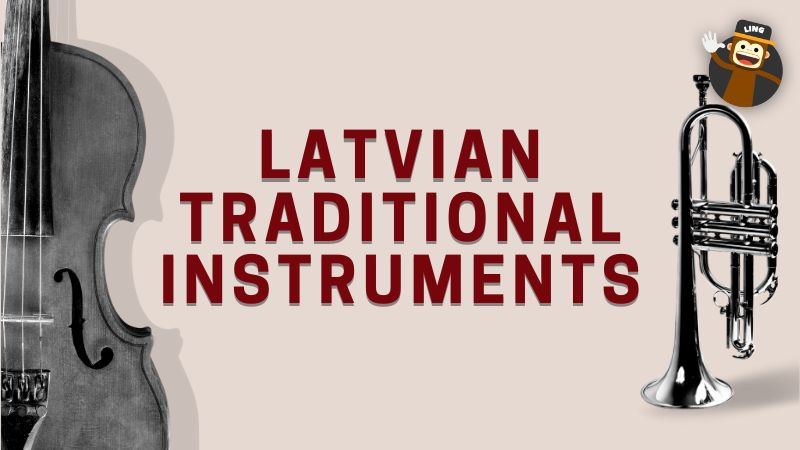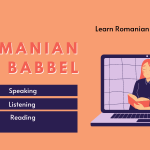Do you know what Mūzika means in the Latvian language? Well, Mūzika is the direct translation for the word music in Latvian. Being a country filled with unique folk music and interesting melodies founded thousands of years back, Latvia is definitely a place of blissfulness. This must be why musicians are genuinely interested in visiting and learning more about this country.
If you are planning to visit Riga and are willing to learn some Latvian music vocab, then this post is perfect for you. From basic music vocab to Latvian traditional folk instruments and related facts, you will encounter numerous information concerning the music culture of Latvia in this article. So, if you are eager to learn, buckle up, and let’s take a roller coaster ride into Latvia’s marvelous music culture.
The Latvian Folk Music
Before starting with translations and vocabularies, understanding the Latvian culture is a must. The country is filled with history, which is reflected in the melodies and ballads played in the country. Their distinct music is so popular, which is why many are also used as background music for films and commercials.
When it comes to this subject, choir traditions are quite the hype in the country since they all look forward to the infamous Latvian National Song and Dance festival. This festival is held once every five years. No wonder why many are devoted to practicing for their performance in the said event. Latvian locals also conduct the Riga Jurmala Music Festival, in which popular bands and orchestras perform and make the event four weekends long during the summer month.
Talking about choirs and festivals, the instruments and inventions of the locals also play a significant role. The Latvian musicians use a variety of traditional instruments, especially the Kokles. They also accept the part of modern equipment such as guitar, drums, and keyboards when it comes to rock music.
What makes the Latvian music culture quite unique and fascinating is the Dainas tradition. These are short, traditional music often regarded as conventional poetry that features pre-Christian themes and legends, played with drone vocal styles and instruments like Baltic Psaltery. Basically, dainas are a part of the celebration, an oral form of daily life reflection.
Thus, you can see Latvians’ vast tradition and love for melodies. Once you land in Latvia, make sure you get to behold the serenity through your senses.
Latvian Music Vocab
Now that you know a little bit of the traditional cultural history of Latvian Music, as students of language learning, let us get right into the literature lesson of the Latvian language and engage in the different words and pronunciations of the Latvian literary related to Music.
Guitar (Ģitāra)
The famous instrument guitar is known as Ģitāra in Latvian. Just like in any other country, Ģitāra is quite renowned in Latvia, and people participate in many world music competitions where they play different instruments, including Ģitāra, along with their traditional pieces.
They play guitar in rock concerts and Latvian traditional music festivals. You can also learn a guitar lesson before landing in Latvia and play it in front of the locals.
Drums (Bungas)
How to say drums in Latvian? In Latvian, people call the drums Bungas. Every other singer needs a guitarist and a drummer, which is no less a fact in Latvian preferences. They are also quite familiar with Bungas and have many drum music groups that play in acts and concerts. Although Bungas are much less popular than the Kokle, it is assumed that much of the use of drums is seen to influence or signal wedding arrivals and so on.
Mouth Organ (Mutes orgāns)
To say mouth organ in Latvian, you have to pronounce Mutes orgāns. While the base remains quite similar, it is more of an accented version of the word Mouth organ. Anyway, Mutes orgāns are also commonly played by musicians of Latvia. They, more frequently, address it as harmonica and purchase it to listen to leisurely melodies most of the time.
Bagpipes (Dūdas)
Bagpipes in Latvian translation sound as Dūdas. Specific Latvian Dūdas produce heavy influential sounds, which have been quite popular and have a long history in the Latvian culture since the 16th century. Many Bagpipe and Drum groups play intense sounds created to force and convey a foreboding message. Still, sometimes, the melody of bagpipes also acts as a sign of joyous expressions and spreads varied emotions. Usually, people tend to speak of Dūdas concerning the male gender. However, it is no longer the same in this modern times.
Violin (Vijole)
Violin is identified as Vijole in Latvia. Not too hard to pronounce, it almost holds the same ground. Vijole emerged in the Latvian folk culture around the 17 century, and ever since, especially during the 19th century, the locals started to address the potency of Vijole. It is usually used in celebrations, and it gained importance with the accompaniment of bagpipes.
Piano (Klavieres)
Klavieres refer to Piano in Latvian, and there are vast numbers of piano users in Latvia. There are more than a hundred traditional songs with piano rhythms, and the potency of piano in the Latvian course of music has discovered great musical heights. After landing in Latvia, make sure you behold the landscapes of Latvian piano music and enable yourself to feel the innate feeling of flawlessness.
Traditional Latvian Musical Instruments
Trideksnis
Trideksnis is one of the most ancient instruments used in Latvia. It was usually played by women. It is a type of instrument created from metal, shaped into a vertical stick with a handle, generally wooden. A material or rattling copper plate would be attached or threaded to the instrument in several layers, and when played, the plates would jingle to produce a harmonious sound.
Buccina
Next up is the popular solo-instrument Buccina. Buccina is a traditional wind instrument in Latvia, and the materials used to produce this piece are horns of cattle and other wild animals. However, the melody range of this instrument is restricted to only a few, and usually, male musicians are seen using this instrument.
Kolke
When we say Latvian traditional music, Kolke is something one cannot miss out on. Kolke is like the heart of Latvian music. It is a string instrument made with a type of wood and covered with a board that is relatively thin and sound outlets cut out. The user plays Kolke instrument by laying the device on his lap or placing it on a table. Usually, musicians tie a string on their shoulder and support the piece near their torso.
More Music-Related Vocab
| English | Latvian |
| Acoustic |
Akustisks |
| Audience |
Auditorija |
| Concert |
Koncerts |
| Folk Song |
Tautasdziesma |
| Instrument |
Instruments |
| Melody |
Melodija |
| Musician |
Mūziķis |
| Opera |
Orķestris |
| Rock Music |
Rokmūzika |
| Singer |
Dziedātājs |
Discover More With Ling!
Are you enjoying this free ride of Latvian culture? If yes, there is still more content waiting for you. While music vocab will help you enhance your Latvian skills, more knowledge of its literature, essential words, grammar, and food will help you dig in deeper and understand the culture more. So, click on Ling App and start learning today.
Ling app provides free content on multiple topics and over 50 languages. Ling provides language tips far more informative and exciting than a spam website with authentic writers and language experts. Access to the Ling language app is quite simple, and you can start learning anytime you want! Download it today!






















